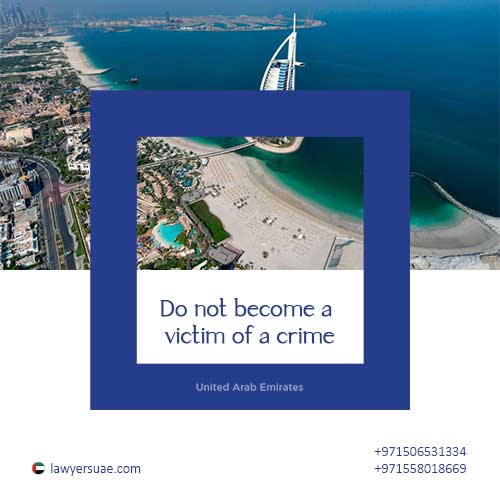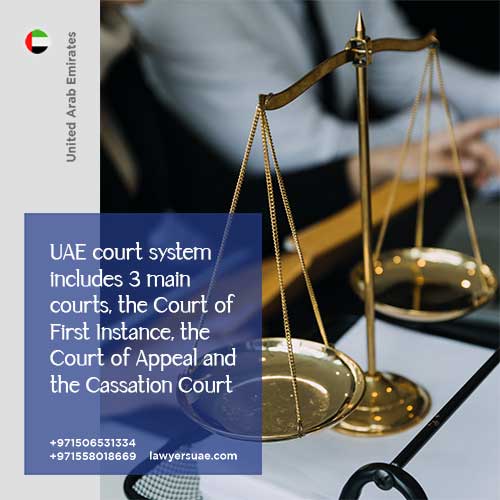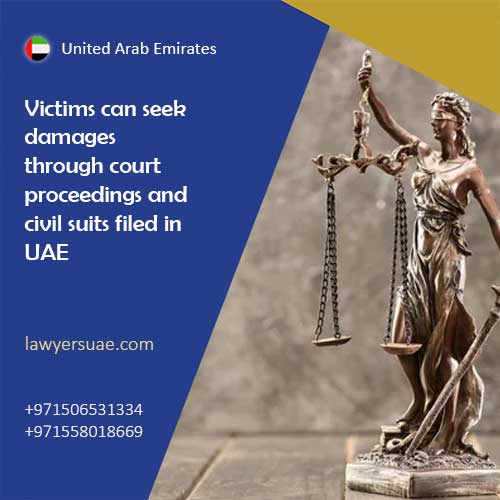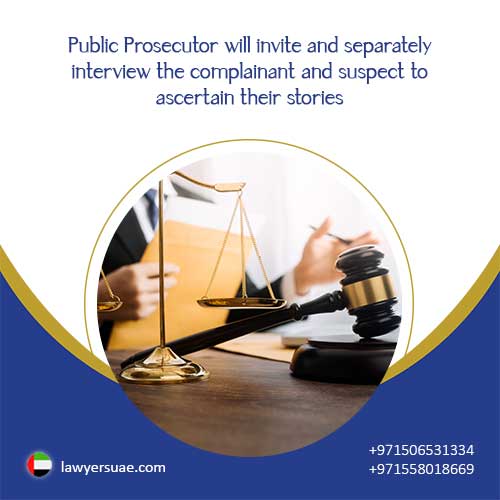The United Arab Emirates has established a comprehensive penal code that serves as the foundation for its criminal law. This legal framework plays a crucial role in maintaining law and order within the country while reflecting the cultural values and traditions of the UAE society. An understanding of the UAE’s penal code is essential for residents, visitors, and businesses operating in the nation to ensure compliance and avoid legal consequences. This article aims to provide a comprehensive guide to the criminal law of the UAE, exploring the key aspects and provisions outlined in the penal code.
What is The Main Criminal Law Governing The UAE?
The UAE Penal Code, officially known as the Federal Law No. 3 of 1987 on Issuance of the Penal Code, recently updated in 2022 with Federal Law No. 31 of 2021, is based on a combination of Sharia (Islamic law) principles and contemporary legal practices. In addition to Islamic principles, the criminal process in Dubai draws regulation from the Criminal Procedures Law No 35 of 1991. This law directs the filing of criminal complaints, criminal investigations, trial processes, judgments, and appeals.
ʻO nā mea pāʻani nui e pili ana i ka hana karaima UAE ʻo ia ka mea i hoʻopiʻi ʻia, ka mea i hoʻopiʻi ʻia / ka mea i hoʻopiʻi ʻia, nā mākaʻi, ka Public Prosecutor, a me nā ʻaha. Hoʻomaka maʻamau nā hoʻokolokolo kalaima i ka wā e waiho ai ka mea i hoʻopiʻi ʻia i kahi hoʻopiʻi kūʻē i ka mea i hoʻopiʻi ʻia ma kahi keʻena mākaʻi kūloko. He kuleana ko ka mākaʻi e noiʻi i nā hewa i hoʻopiʻi ʻia, ʻoiai e hoʻopiʻi ka Loio Aupuni i ka mea i hoʻopiʻi ʻia i ka ʻaha.
Aia i loko o ka ʻōnaehana hoʻokolokolo ʻo UAE ʻekolu mau ʻaha nui:
- Ka Aha o ka manawa mua: Ke waiho hou ia mai nei na hihia karaima a pau imua o keia aha. Aia i loko o ka ʻaha hoʻokahi luna kānāwai nāna e hoʻolohe i ka hihia a hāʻawi i ka hoʻoholo. Eia naʻe, ʻekolu mau luna kānāwai e hoʻolohe a hoʻoholo i ka hihia ma ka hoʻokolokolo felony (ʻo ia ka hoʻopaʻi koʻikoʻi). ʻAʻohe ʻae ʻia no ka hoʻokolokolo jure i kēia manawa.
- Ka Aha Hoopii: Ma hope o ka hoʻopuka ʻana o ka ʻAha Kūkākūkā Mua i kāna hoʻoholo, hiki i kēlā me kēia ʻaoʻao ke waiho i kahi hoʻopiʻi i ka ʻAha Hoʻopiʻi. E ʻoluʻolu, ʻaʻole lohe hou kēia ʻaha i ka hihia. Pono e hoʻoholo inā he hewa i ka ʻaha hoʻokolokolo haʻahaʻa.
- Ka Aha Hookolokolo: Hiki ke hoʻopiʻi hou i ka ʻAha Hoʻokolokolo Hoʻopiʻi ka mea i ʻoluʻolu ʻole i ka manaʻo o ka ʻAha Hoʻopiʻi. ʻO ka hoʻoholo o kēia ʻaha hoʻoholo.
Ina i hoahewaia no ka hewa, hoomaopopo i ka Ke Kaʻina Hoʻopiʻi Karaima ma UAE mea nui. Hiki i kekahi loio hoʻopiʻi kalaima akamai ke kōkua i ka ʻike ʻana i nā kumu no ka hoʻopiʻi ʻana i ka ʻōlelo hoʻoholo a i ʻole ka hoʻopaʻi.
What are the key principles and provisions of the UAE’s Penal Code?
The UAE Penal Code (Federal Law No. 3 of 1987) is based on a combination of Sharia (Islamic law) principles and contemporary legal concepts. It aims to maintain law and order while preserving the cultural and religious values of the UAE society, as per the general principles outlined in Article 1.
- Principles Derived from Sharia Law
- Prohibitions on activities like gambling, alcohol consumption, illicit sexual relations
- Hudud crimes like theft and adultery have Sharia-prescribed punishments e.g. amputation, stoning
- Retributive “eye for an eye” justice for crimes like murder and bodily harm
- Contemporary Legal Principles
- Codification and standardization of laws across emirates
- Clearly defined crimes, penalties, statutory limitations
- Due process, presumption of innocence, right to counsel
- Na Hoolako Ki
- Crimes against state security – treason, terrorism, etc.
- Crimes against individuals – murder, assault, defamation, honor crimes
- Financial crimes – fraud, breach of trust, counterfeiting, money laundering
- Cybercrimes – hacking, online fraud, illegal content
- Public safety, moral crimes, prohibited activities
The Penal Code blends Sharia and contemporary principles, though some provisions face human rights criticism. Consulting local legal experts is recommended.
Criminal Law vs Criminal Procedure Law in the UAE
Criminal Law defines the substantive rules that establish what constitutes a crime and prescribe the punishment or penalty to be imposed for proven offenses. It is covered under the UAE Penal Code (Federal Law No. 3 of 1987).
Nā Kiʻi Kiʻi:
- Categories and classifications of crimes
- Elements that must be proven for an act to qualify as a crime
- The punishment or sentence corresponding to each crime
For example, the Penal Code defines murder as a criminal offense and specifies the punishment for someone convicted of murder.
Criminal Procedure Law, on the other hand, establishes the procedural rules and processes for enforcing the substantive criminal laws. It is outlined in the UAE Criminal Procedure Law (Federal Law No. 35 of 1992).
Nā Kiʻi Kiʻi:
- Powers and limitations of law enforcement in investigations
- Procedures for arrest, detention, and charging an accused
- Rights and protections afforded to the accused
- Conducting trials and court proceedings
- The appeals process after a judgment
For instance, it lays down rules for collecting evidence, the process of charging someone, conducting a fair trial, and the appeals mechanism.
While criminal law defines what a crime is, criminal procedure law ensures those substantive laws are implemented properly through an established judicial process, from investigation to prosecution and trials.
The former outlines legal consequences, the latter enables enforcement of those laws.
Ka hoʻokaʻawale ʻana o nā hewa a me nā hewa ma ke kānāwai karaima UAE
Ma mua o ka waiho ʻana i kahi hoʻopiʻi kalaima, pono e aʻo i nā ʻano hewa a me nā hewa ma lalo o ke kānāwai UAE. ʻEkolu mau ʻano hewa nui a me kā lākou hoʻopaʻi:
- Kue (Kuhi): ʻO kēia ka māhele koʻikoʻi loa a i ʻole ka hewa liʻiliʻi o nā hewa UAE. Hoʻopili lākou i kekahi hana a i ʻole hana ʻole e huki ai i ka hoʻopaʻi a i ʻole ka hoʻopaʻi ʻaʻole ʻoi aku ma mua o 10 mau lā i loko o ka hale paʻahao a i ʻole ka uku ʻoi loa o 1,000 dirhams.
- Na hewa: A misdemeanor is punishable with confinement, a fine of 1,000 to 10,000 dirhams at most, or deportation. The offence or penalty may also attract Diyyat, he uku Islam no "kālā koko".
- ʻO Felonies: ʻO kēia nā hewa koʻikoʻi ma lalo o ke kānāwai UAE, a ua hoʻopaʻi ʻia lākou e ka lōʻihi o ke ola paʻahao, make, a i ʻole. Diyyat.
How Are Criminal Laws Enforced in The UAE?
Criminal laws in the UAE are enforced through the combined efforts of law enforcement agencies, the public prosecution, and the judicial system, as outlined in the UAE Criminal Procedure Law. The process typically begins with an investigation conducted by police authorities upon receiving information about a potential crime. They have the power to summon individuals, collect evidence, make arrests, and refer cases to the public prosecution.
The public prosecution then reviews the evidence and decides whether to press formal charges or dismiss the case. If charges are filed, the case proceeds to trial in the relevant court – the Court of First Instance for felonies and misdemeanors, and the Court of Misdemeanors for lesser offenses. Trials are overseen by judges who evaluate the evidence and testimonies presented by the prosecution and defense.
After the court issues a judgment, both the convicted person and the prosecution reserve the right to appeal to higher courts like the Court of Appeal and then the Court of Cassation. The enforcement of final verdicts and sentences is carried out through the police, public prosecution, and the prison system in the UAE.
What is The Process For Reporting A Crime in The UAE?
When a crime occurs in the UAE, the first step is to file a complaint with the police at the nearest station, preferably close to where the incident took place. This can be done either orally or in writing, but the complaint must clearly detail the events that constitute the alleged criminal offense.
The police will have the complainant provide their statement, which is recorded in Arabic and must be signed. Additionally, UAE law allows complainants to call witnesses who can corroborate their account and lend credibility to the allegations. Having witnesses provide supplementary context can greatly aid the subsequent criminal investigation.
Once a complaint is filed, the relevant authorities commence an investigation to verify the claims and attempt to identify and locate potential suspects. Depending on the nature of the crime, this could involve legal officers from the police, immigration officials, coast guards, municipality inspectors, border patrol, and other law enforcement agencies.
A key part of the investigation is interrogating any identified suspects and taking their statements. The suspects also have the right to present their own witnesses to support their version of events. Authorities collect and analyze all available evidence such as documents, photos/videos, forensics, and witness testimony.
If the investigation finds sufficient evidence of a criminal act, the public prosecutor then decides whether to press formal charges. If charges are filed, the case proceeds to the UAE courts as per the Criminal Procedure Law.
At this stage, those looking to pursue a criminal case against another party should take certain steps in addition to the police complaint:
- Obtain a medical report documenting any injuries
- Gather other evidence like insurance records and witness statements
- Consult an experienced criminal defense lawyer
If the prosecutor moves forward with charges, the complainant may need to file a civil lawsuit to have the criminal case heard in court.
He aha nā ʻano kalaima hiki ke hōʻike ʻia?
Hiki ke hōʻike ʻia kēia mau hewa i nā mākaʻi ma UAE:
- ʻO ka make
- Pepehi kanaka
- Hō'āiwi
- Hanaʻino
- Hale ʻaihue
- aihue
- ʻO ka Hoʻopuka ʻana
- Nā hihia pili kaʻa
- Pāpale
- Hana hoʻopunipuni
- Laau hewa
- Kekahi hewa a hana ʻē aʻe e kūʻē i ke kānāwai
No nā hanana e pili ana i ka palekana a i ʻole ka hoʻomāinoino, hiki ke kiʻi pololei ʻia nā mākaʻi ma o kā lākou Aman Service ma 8002626 a i ʻole ma ka SMS i 8002828. Eia kekahi, hiki i nā kānaka ke hōʻike i nā hewa ma ka pūnaewele ma o ka ʻO ka pūnaewele mākaʻi o Abu Dhabi aiʻole ma kekahi lālā o ka Criminal Investigation Department (CID) ma Dubai.
What Are The Procedures For Criminal Investigations And Trials in The UAE?
Criminal investigations in the UAE are governed by the Criminal Procedure Law and overseen by the public prosecution. When a crime is reported, the police and other law enforcement agencies conduct an initial investigation to gather evidence. This can involve:
- Questioning suspects, victims, and witnesses
- Collecting physical evidence, documents, recordings etc.
- Conducting searches, seizures, and forensic analysis
- Working with experts and consultants as needed
The findings are presented to the public prosecution, who reviews the evidence and decides whether to press charges or dismiss the case. The Public Prosecutor will invite and separately interview the complainant and suspect to ascertain their stories. At this stage, either party may produce witnesses to verify their account and help the Public Prosecutor determine if a charge is necessary. Statements at this stage are also made or translated into Arabic and signed by both parties. If charges are filed, the prosecution prepares the case for trial.
Criminal trials in the UAE take place in the courts under the purview of judges. The process typically involves:
- The charges being read out by the prosecution
- The defendant entering a plea of guilty or not guilty
- The prosecution and defense presenting their evidence and arguments
- Examination of witnesses from both sides
- Closing statements from prosecution and defense
The judge(s) then deliberate in private and issue a reasoned judgment – acquitting the defendant if not convinced of guilt beyond reasonable doubt or issuing a conviction and sentence if they find the defendant guilty based on the evidence.
Both the convicted person and prosecution have the right to appeal to higher courts against the judgment or sentence. The appeals courts review the case records and may uphold or overturn the lower court’s decision.
Throughout the process, certain rights such as presumption of innocence, access to legal counsel, and standards of evidence and proof must be upheld as per UAE law. Criminal courts handle cases ranging from minor offenses to serious crimes like financial fraud, cybercrimes, and violence.
Hiki paha ke alualu i ka hihia karaima inā ʻaʻole i loaʻa ka mea hana hewa?
ʻAe, hiki ke alualu i ka hihia kalaima i kekahi mau hihia, ʻoiai inā ʻaʻole hiki ke ʻike ʻia ka mea hana hewa. Inā paha ua hōʻiliʻili ka mea i hōʻeha i nā hōʻike e hōʻike ana i ke ʻano o ko lākou ʻeha a hiki ke hāʻawi i nā palapala maopopo o ka wā a me kahi i hana ʻia ai ka hanana. Ma ia hihia, hiki ke alualu i ka hihia karaima.
What Are The Legal Rights Of Victims Under UAE’s Criminal Law?
The UAE takes measures to protect and uphold the rights of crime victims during the legal process. Key rights afforded to victims under the UAE Criminal Procedure Law and other regulations include:
- Right to File a Criminal Complaint Victims have the right to report crimes and initiate legal proceedings against perpetrators
- Rights During Investigation
- Right to have complaints promptly and thoroughly investigated
- Right to provide evidence and witness testimony
- Right to participate in certain investigative measures
- Rights During Trial
- Right to access legal counsel and representation
- Right to attend court hearings unless excluded for reasons
- Right to review/comment on evidence submitted
- Right to Seek Damages/Compensation
- Right to claim compensation from perpetrators for damages, injuries, medical expenses and other quantifiable losses
- Victims can also seek reimbursement for travel and other expenses but not for wages/income lost due to time spent attending court proceedings
- Rights Related to Privacy, Safety and Support
- Right to have identities protected and kept confidential if required
- Right to protection measures for victims of crimes like human trafficking, violence etc.
- Access to victim support services, shelters, counseling and financial aid funds
The UAE has established mechanisms for victims to claim damages and compensation through civil lawsuits against perpetrators. Additionally, victims have the right to legal assistance and can appoint lawyers or have legal aid assigned. Support entities also provide free advice and counsel.
Overall, UAE laws aim to safeguard victims’ rights to privacy, prevent re-victimization, ensure safety, enable compensation claims, and provide rehabilitation services during the criminal justice process.
He aha ke kuleana o ka loio pale i nā hihia kalaima?
ʻO ka loio pale ke kuleana no ka pale ʻana i ka mea lawehala ma ka ʻaha hoʻokolokolo. Hiki iā lākou ke hoʻopiʻi i nā hōʻike i hōʻike ʻia e ka luna hoʻopiʻi a hoʻopaʻapaʻa e hoʻokuʻu ʻia ka mea lawehala a hoʻemi ʻia ka hoʻopaʻi.
Eia kekahi mau hana a ka loio karaima ma na hihia karaima.
- Hiki i ka loio pale ke ʻōlelo ma ka ʻaoʻao o ka mea lawehala ma nā hālāwai hoʻokolokolo.
- Inā pau ka hihia i ka hoʻopaʻi ʻia, e hana pū ka loio me ka mea i hoʻopiʻi ʻia e hoʻoholo i kahi hoʻopaʻi kūpono a hōʻike i nā kūlana hoʻēmi e hōʻemi i ka hoʻopaʻi ʻana.
- I ka wā e kūkākūkā ai i kahi ʻōlelo hoʻopiʻi me ka hoʻopiʻi, hiki i ka loio pale ke waiho i kahi ʻōlelo manaʻo no kahi hoʻopaʻi hoʻemi.
- Na ka loio pale ke kuleana o ka mea i hoopiiia ma ka hookolokolo ana.
He aha ke kuleana o ka hōʻike forensic i nā hihia kalaima?
Hoʻohana pinepine ʻia nā hōʻike forensic i nā hihia kalaima e hoʻokumu i nā ʻoiaʻiʻo o kahi hanana. Hiki i kēia ke komo i nā hōʻike DNA, nā manamana lima, nā hōʻike ballistic, a me nā ʻano ʻike ʻepekema ʻē aʻe.
He aha ke kuleana o ka makai ma nā hihia karaima?
Ke hōʻike ʻia kahi hoʻopiʻi, e hāʻawi ka mākaʻi iā ia i nā keʻena kūpono (ke keʻena lapaʻau forensic, ke keʻena kalaima uila, etc.) no ka loiloi.
A laila e hāʻawi ka mākaʻi i ka hoʻopiʻi i ka hoʻopiʻi lehulehu, kahi e hoʻonoho ʻia ai kahi luna hoʻopiʻi e nānā iā ia e like me ka UAE Penal Code.
E noiʻi pū ka mākaʻi i ka hoʻopiʻi a hōʻiliʻili i nā hōʻike e kākoʻo i ka hihia. Hiki iā lākou ke hopu a paʻa i ka mea lawehala.
He aha ka hana a ka Luna Hoʻopiʻi ma nā hihia karaima?
Ke waiho ʻia kahi hoʻopiʻi i ka hoʻopiʻi lehulehu, e hoʻonoho ʻia kahi loio e nānā i ka hoʻopiʻi. A laila e hoʻoholo ka loio inā e hoʻopiʻi i ka hihia a ʻaʻole paha. Hiki iā lākou ke koho e waiho i ka hihia inā ʻaʻole lawa nā hōʻike e kākoʻo ai.
E hana pū ka loio me nā mākaʻi e noiʻi i ka hoʻopiʻi a hōʻiliʻili i nā hōʻike. Hiki iā lākou ke hopu a paʻa i ka mea lawehala.
He aha ke kuleana o ka loio o ka mea i make ma na hihia karaima?
Hiki ke hoʻopaʻi ʻia ka mea lawehala a kauoha ʻia e uku i ka mea i hoʻopaʻi ʻia ma kekahi mau hihia. E hana pū ka loio o ka mea i hoʻopaʻi ʻia me ka ʻaha i ka wā e hoʻopaʻi ʻia ai a ma hope paha e hōʻiliʻili i nā hōʻike e hoʻoholo ai inā loaʻa i ka mea lawehala nā mana kālā e uku ai i ka mea i hoʻopaʻi ʻia.
Hiki nō hoʻi i ka loio o ka mea i hoʻopaʻi ʻia ke kūʻē iā lākou ma nā hoʻopiʻi kīwila e kūʻē i ka poʻe lawehala.
Inā ua hoʻopiʻi ʻia ʻoe no ka hana hewa, pono e ʻimi i nā lawelawe a kahi loio lawehala. Hiki iā lākou ke aʻo aku iā ʻoe i kāu mau kuleana a kū i ka ʻaha hoʻokolokolo.
How Does The UAE’s Criminal law Handle Cases Involving Foreigners Or Visitors?
The United Arab Emirates enforces its comprehensive legal system equally on citizens and non-citizens for any criminal offenses committed within its borders. Foreign nationals, expatriate residents, and visitors are all subject to the UAE’s criminal laws and judicial processes without exception.
If accused of a crime in the UAE, foreigners will go through arrest, charges, and prosecution via the local courts where the alleged offense occurred. Proceedings are in Arabic, with translation provided if needed. The same standards of evidence, legal representation provisions, and sentencing guidelines apply regardless of one’s nationality or residency status.
It’s crucial for foreigners to understand that actions acceptable elsewhere may constitute crimes in the UAE due to differences in laws and cultural norms. Ignorance of the law does not excuse criminal behavior.
Embassies may offer consular assistance, but the UAE maintains full authority over prosecution of foreign defendants. Respecting local laws is a must for visitors and residents alike.
Moreover, foreigners should note that they may face detention during investigations, with pre-trial procedures and rights to understand. Court cases can also experience lengthy delays impacting one’s stay. Uniquely, double jeopardy principles from other nations may not apply – the UAE could retry someone for an offense they faced prosecution for elsewhere previously.
Pehea inā aia ka mea ʻeha ma kekahi ʻāina ʻē?
Inā ʻaʻole i loaʻa ka mea i hōʻeha ʻia ma UAE, hiki iā lākou ke hāʻawi i nā hōʻike e kākoʻo i kahi hihia lawehala. Hiki ke hana ʻia kēia me ka hoʻohana ʻana i ka hālāwai kūkā wikiō, ka waiho ʻana ma ka pūnaewele, a me nā ʻano hana hōʻike hōʻike ʻē aʻe.
How Can One Check The Status Of A Criminal Case Or Police Complaint in The UAE?
The method for tracking the progress of a criminal matter or police complaint filed in the United Arab Emirates varies based on the emirate where the case originated. The two most populous emirates, Dubai and Abu Dhabi, have distinct approaches.
Dubai
In Dubai, residents can utilize an online portal created by the Dubai Police force that allows case status checks by simply entering the reference number. However, if this digital service is inaccessible, alternative contact options like:
- The police call center
- enamel
- Website/app live chat
Abu Dhabi
On the other hand, Abu Dhabi takes a different route by offering a dedicated case tracking service through the Abu Dhabi Judicial Department’s website. To use this, one must first register for an account using their Emirates ID number and date of birth before gaining access to view case details online.
Nā ʻ Tipslelo aʻo
No matter which emirate is involved, retaining the specific case reference number is vital for any online inquiry about its status and progress.
If the digital options are unavailable or experiencing technical difficulties, directly contacting either the original police station where the complaint was filed or the judicial authorities overseeing the case can provide the necessary updates.
It’s important to note that while these online tracking services aim to increase transparency, they are still evolving systems that may encounter limitations periodically. Traditional channels of communication with law enforcement and the courts remain reliable alternatives.
How Does the UAE’s Criminal Law Handle Arbitration or Alternative Dispute Resolution?
The UAE criminal law system primarily deals with prosecution of criminal offenses through the court system. However, it does allow for arbitration and alternative dispute resolution methods in certain cases before formal charges are brought.
For minor criminal complaints, police authorities may first attempt to resolve the matter through mediation between the parties involved. If a settlement is reached, the case can be closed without proceeding to trial. This is commonly used for issues like bounced cheques, minor assaults, or other misdemeanors.
Binding arbitration is also recognized for certain civil matters that have criminal implications, such as labor disputes or commercial conflicts. An appointed arbitration panel can render a decision that is legally enforceable. But for more serious criminal allegations, the case will go through the standard prosecution channels in the UAE courts.
Why Do You Need A Local Specialized And Experienced Criminal Lawyer
Facing criminal charges in the United Arab Emirates demands specialist legal expertise that only a local, seasoned criminal lawyer can provide. The UAE’s unique legal system, blending civil and Sharia laws, requires in-depth knowledge that comes from years of experience working within its judicial processes. A lawyer based in the Emirates understands the nuances that international practitioners may overlook.
More than just comprehending the laws, a local criminal lawyer serves as an invaluable guide for navigating the UAE’s courts. They are well-versed in the protocols, procedures and dynamics of the justice system. Their linguistic proficiency in Arabic ensures accurate translation of documents and clear communication during hearings. Aspects like these can be critical advantages.
Additionally, UAE lawyers with established careers often possess connections, reputation and a deep cultural understanding – assets that can benefit a client’s case strategy. They grasp how the society’s customs and values interplay with the laws. This context informs how they construct legal defenses and negotiate for favorable resolutions with authorities.
From managing different criminal charges to handling evidence properly, a specialized local criminal lawyer has honed tactics specific to the UAE Courts. Their strategic representation draws from direct experience uniquely relevant to your situation. While all legal counsel is important when accused, having an advocate deeply ensconced in UAE criminal law can make a pivotal difference.
Inā ʻoe i hoʻokolokolo ʻia, hopu ʻia, a i hoʻopiʻi ʻia paha me ka hewa kalaima ma United Arab Emirates, pono e loaʻa kahi loio i ʻike i nā kānāwai o ka ʻāina. ʻO kāu kānāwai kūkākūkā me mākou e kōkua iā mākou e hoʻomaopopo i kou kūlana a me kou hopohopo. E kelepona iā mākou e hoʻonohonoho i kahi hālāwai. E kelepona iā mākou i kēia manawa no kahi Koho koke a me ka halawai ma +971506531334 +971558018669





